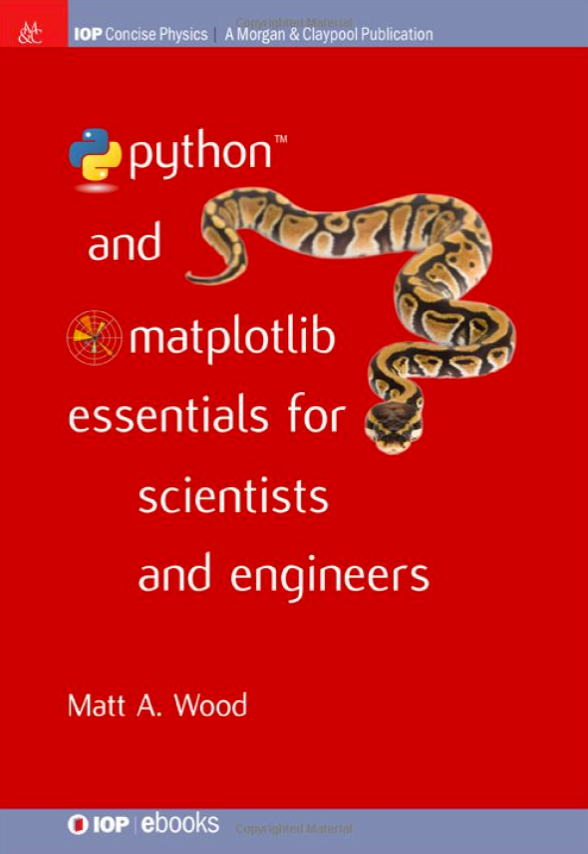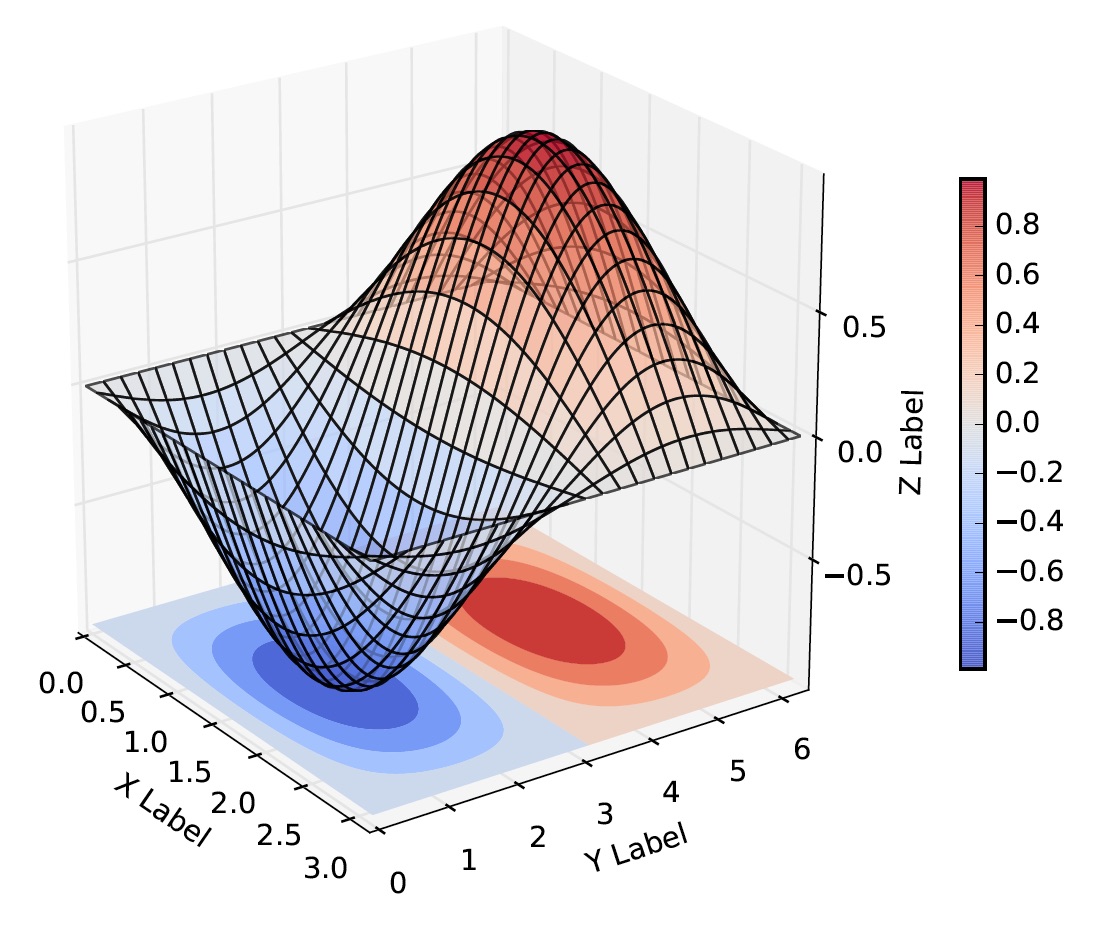Python and Matplotlib Essentials for Scientists and Engineers
 Welcome to the companion website for the book Python and Matplotlib Essentials for Scientists and Engineers being published summer 2015 by Morgan & Claypool Publishers as part of the series IOP Concise Physics (DOI: 10.1088/978-1-7270-5620-5). Order a copy from Amazon here (paperback).
Welcome to the companion website for the book Python and Matplotlib Essentials for Scientists and Engineers being published summer 2015 by Morgan & Claypool Publishers as part of the series IOP Concise Physics (DOI: 10.1088/978-1-7270-5620-5). Order a copy from Amazon here (paperback).
Python and Matplotlib Essentials for Scientists and Engineers is intended to provide a starting point for scientists or engineers (or students of either discipline) who want to explore using Python and Matplotlib to work with data and/or simulations, and to make publication-quality plots. The active user base of Python and Matplotlib has been growing rapidly in recent years as people realize these packages have a very high-level of functionality, are freely available for any likely operating system, and are relatively simple to learn and use as compared with similar software solutions.
No previous programming experience is needed before beginning the book, as my aim was to make it a stand-alone introduction to Python and Matplotlib . Indeed, my hope is that you the reader can take this introduction, and discover for yourself in just a few hours whether Python and Matplotlib provide most if not all of the tools you need to get your work done, and your publication quality plots rendered.
. Indeed, my hope is that you the reader can take this introduction, and discover for yourself in just a few hours whether Python and Matplotlib provide most if not all of the tools you need to get your work done, and your publication quality plots rendered.
Download Code Examples
You can download the code examples given in the book in the gold-framed boxes in either .tar.gz. or .zip format:
About the Author:
Matt A. Wood graduated with a B.S. degree in Physics from Iowa State University, and Master's and Ph.D. degrees in Astronomy from the University of Texas at Austin. He spent a year as a NATO Postdoctoral Fellow at the Université de Montreal in Quebec before accepting a position as assistant professor at The Florida Institute of Technology. He spent the 2008-2009 academic year on sabbatical at Radboud University in Nijmegen, The Netherlands, where he was first introduced to the Python programming language. In 2012 he joined the Department of Physics & Astronomy at East Texas A&M University (formerly Texas A&M University-Commerce) as department head. From 2018-2019 he served as the Vice Provost for Research and Dean of the Graduate school, before escaping full-time administration for the best job in the world: full time faculty. His current research focuses on mass-transfer binary star systems known as cataclysmic variables. He has been an author on more than 90 peer-reviewed publications, and a similar number of non-refereed publications. In his spare time, he can be found flying his Van's RV-7A for $100 hamburgers and weekend trips with the love of his life, Asli.
